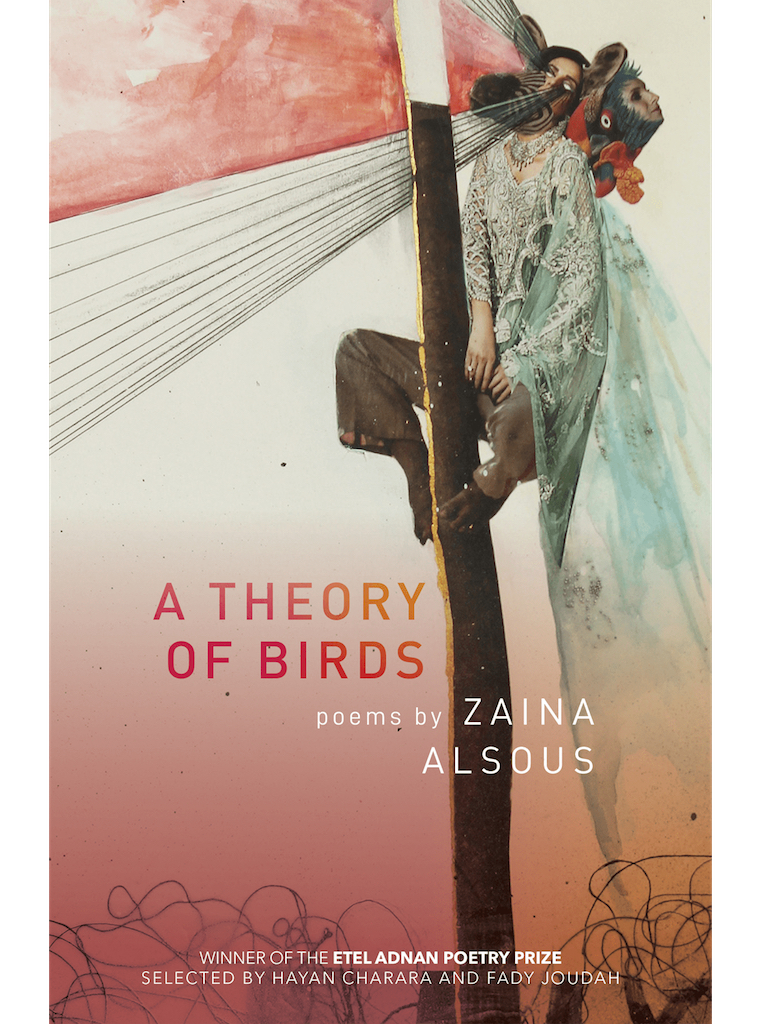There was occupation, a market for tracing, clouded October and open fire, there was text flattened into macabre telescope, an orchestra of stolen petrified skulls, there was tombs made civic hand-drawn cattle splayed in spectrums of gray, there was afterword—New World Order of sunsets, a sugar plantation and a French slave master’s son, there was a fixation of birds, there was a hobby of arranging murdered muses with wire to be painted exactly like this, there was a book of the dead named Birds of America, an incident of canon, there was grove air, there was turpentine, orange and harvest, and piles and piles of indentured coiling, there was Syrian Christians petitioning against Yellow to better own houses, there was stacks of pledges and dictionaries without song, a refugee crisis and a father with a flag pin, there was a daughter and her pages of class mobility, there was hours of wrists and balconies and inadequate protest, there was an inquiry into how the green lawn occurred, there was a poet trying to retrace a book of the dead, she entered many cities portending a crow in spring, wearing a dress glimmering of sweatshops, she asked the tarot reader in New Orleans for clues: The corpses in you are damaged, but they have a lot to say.
Naturalization
Feature Date
- May 6, 2020
Series
- Editor's Choice
Selected By
- Brian Teare
Share This Poem
Print This Poem
Copyright © 2019 by Zaina Alsous
First appeared in the July/Aug 2019, Volume XLI Number 4 issue of The Kenyon Review
All rights reserved.
Reproduced by Poetry Daily with permission.

Fayetteville, Arkansas
Winner of the 2019 Etel Adnan Poetry Prize
“A Theory of Birds opens with phrases stitched with commas that are both light and startling: a grammar-flux that produces the effect of something falling out of or off the page. Zaina Alsous: ‘I entered through the empty cage, hips first.’ Zaina Alsous: ‘Can the map eat?’ The questions that follow invert their cardinal nouns, reverting to zero each time the next one is asked. I became curious about the nothing-everything of the book itself, the logic of voids and flight. A book that proposes a ‘collaboration with the dead’ but also a paradise of solar pathways and outcomes (intense joy). Alsous offers the reader a ‘previously’ as much as an ‘almost.’ A jar in France, a blonde hair in Fez: foreignness composes fragments in the shape of an ibis, a harp, a broken lantern, pinning them on a sky-red space: the page, which also shakes—shakes so hard that letters lose their place. And what would it be to write anyway? To love anyway? Zaina Alsous: ‘When I say home, I mean origin as a transitive verb. / When I say love, I mean these miracles are work.’”
—Bhanu Kapil
“Gabriel García Márquez wrote that Christopher Columbus’s Diario, ‘a book that speaks of fabulous plants and mythological lands,’ was the first example of magical literature in the Caribbean. This ‘magic’ is the colonizer’s ability to falsify a history, to rename what has already been discovered, to create taxonomies and eradicate the epistemologies of entire peoples. Zaina Alsous’s A Theory of Birds makes another kind of magic. Alsous writes, ‘While invading the New World, Columbus writes of sirens in / his notebooks, evoking the half-women, half-birds of Jason’s / Argonauts. Every time I look for women, I become more bird.’ Here is the magic of decolonization, the way it reconnects us past the romanticized past of the noble savage, past the Orientalist hybrids of an unimaginative colonial fiction, all the way to a poetics born of solidarity, of struggle, and pushing through the fissures that will eventually break apart empire. ‘Listen, next time, the flowers are naming themselves.’”
—Raquel Salas Rivera
Poetry Daily Depends on You
With your support, we make reading the best contemporary poetry a treasured daily experience. Consider a contribution today.




